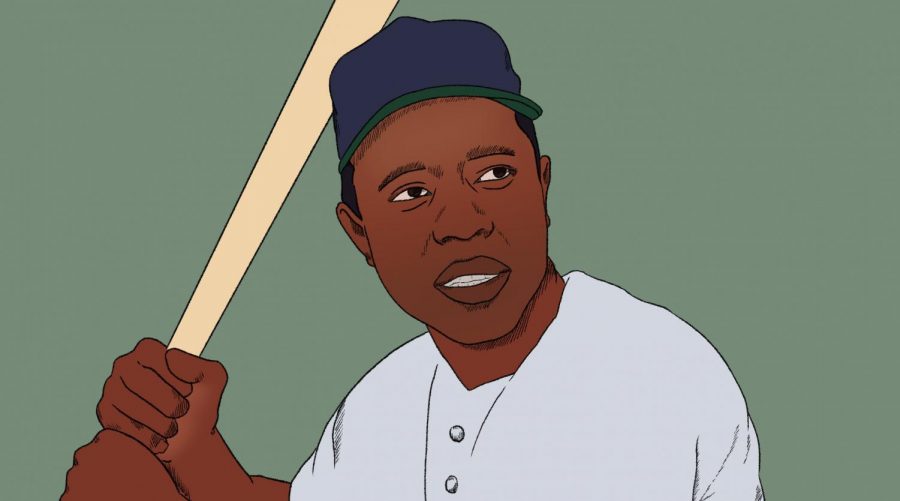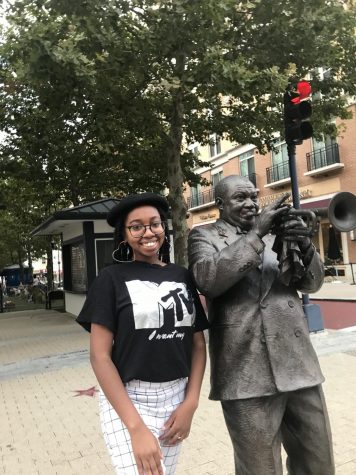In his 1992 film, “A League of Their Own,” Tom Hanks famously said, “there is no crying in baseball,” but nearly 30 years later, he was proven wrong when on Jan. 22, the world lost one of the greatest baseball players of all time and one of America’s most prolific athletes.
“Hammerin’” Hank Aaron, a man whose courage and persistence equaled his impressive accomplishments, died in his sleep at the age of 86.
Jackie Robinson broke Major League Baseball’s color barrier as the first Black player and Frank Robinson was the game’s first Black manager, but Aaron was no less influential.
Known as baseball’s former home run king, a first-ballot Hall of Famer and one of the greatest sluggers to ever walk up to the plate, Aaron produced a historic career.
For a player defined by his greatness, it’s hard to choose a single moment that stands out above them all as the most iconic.
But for Aaron, one special day bears in mind.
It took only five days in the 1974 Major League Baseball season for Aaron to make history. After a long break where he experienced credible death threats and vile hatred heading into his age-40 season, Aaron stood one dinger short of Babe Ruth’s 714 career home runs.
Though it took him 20 seasons to accumulate 713 four-baggers, it took only one at-bat in 1974 for Aaron to tie Ruth’s grand total. During his fourth game of the season playing against the Dodgers at home in Atlanta, Aaron’s day of elation finally came.
Following a walk in his first at-bat, Aaron faced off against Al Downing with one runner on base and nobody out in the bottom of the 4th inning. A record-breaking crowd of 53,775, which included President Jimmy Carter (then Governor), Sammy Davis Jr. and Aaron’s mother, Estella, rose to their feet in Atlanta-Fulton County Stadium to guide Aaron across the finish line.
After taking Downing’s first pitch in the dirt, he saw the 1-0 and launched a moonshot 385 feet deep, landing in the bullpen behind the left-field fence. It usually takes less than 5 seconds from the crack of the bat until a baseball clears the fence but that home run was a lifetime in the making. This blast tied the game at three and marked his 715th home run, shattering Ruth’s 53-year reign as baseball’s home run champ.
While Aaron rounded second base and headed to third, two 17-year-old fans came out of the stands to congratulate him as he crossed the bag. Though initially alarmed by the fans arriving at his side, it became clear that everyone witnessing Aaron’s personal triumph celebrated like their own biggest dreams just came true. This joyful encounter created an iconic image of one of baseball’s all-time moments.
More than just earning himself a prestigious record, Aaron’s dethroning of Ruth was one of the most significant moments of history.
However, to even arrive at his greatest achievement, Aaron and his family had to experience an unfathomable level of hatred solely due to the color of his skin and the prejudice of America.
THE BLOSSOMING OF A BEAUTIFUL CAREER
Born Feb. 5, 1934, in a poor Mobile, Alabama neighborhood referred to as “Down the Bay,” Aaron had a tough upbringing. His family, which consisted of seven siblings (including his brother Tommie who also played in the MLB), could not afford to buy him baseball equipment, so Aaron practiced with whatever materials he could find. Besides having to overcome poverty, Aaron was a constant victim of systemic racism and was often instructed by his mother to hide under the bed when the local KKK chapter would come near their house.
Living in the Deep South during segregation, Aaron would have a harder path to the pros than most players from his generation.
In 1948, a year after he broke baseball’s color barrier, Jackie Robinson arrived in Mobile to publicly speak against segregation. A then 14-year old Aaron chose to skip school and witness his hero’s sermon. Inspired by his speech and the leadership he presented as an athlete and an activist, Aaron attempted to emulate Robinson’s path as best as he could.
After rising through various semi-pro teams, Aaron’s first professional baseball experience was with the Indianapolis Clowns of the Negro American League. Playing for the Clowns is how he first drew attention from major league clubs, including the Boston Braves, the organization he’d shine with for over twenty seasons. In 1952, the Braves purchased Aaron’s contract for a $10,000 sum, a bargain that paid off for decades.
In every season he played except his first and last, Aaron was selected as an all-star. He became one of the league’s defining players in its Expansion Era, often being cited along with legends like Willie Mays, Frank Robinson and Roberto Clemente.
In an inherently racist sport where Black players had to excel to gain attention and risked their safety if they excelled too much, many players were broken down by the targeted effort of white supremacy. Aaron and his family routinely dealt with hateful letters and death threats, propelling Aaron to use two bodyguards and the FBI to begin investigating.
Aaron still kept the hate mail from all those years ago and when asked in 2014 about why he never discarded them, he said it reminded himself we are “not that far removed” from when he was chasing Ruth’s record.
“If you think that, you are fooling yourself,” Aaron said. “A lot of things have happened in this country, but we have so far to go.”
Throughout his career, Aaron was a pillar of offensive consistency and despite never hitting more than 47 home runs in a season, he hit at least 30 homers in 15 seasons and at least 24 homers for 19 consecutive seasons (1955-1973). He was a leader and an exemplary man, who retired as the career leader in runs batted in, total bases, extra-base hits, and all-star appearances, along with being 2nd in home runs and 3rd in hits.
Serving as the first Black star player of a professional team when the Braves relocated from Milwaukee to Atlanta in 1966, Aaron was impressive in terms of having the most resilient, methodically productive career the world has ever seen, but also exuded a quiet confidence, resilience, and dignity, even when dealing with the sad reality of death threats as he approached Ruth’s home run record.
After 23 memorable seasons, Hank Aaron retired from baseball at the age of 42.
LEGACY AND LIFE AFTER BASEBALL
Even after retirement, Aaron was still actively involved in the sport, serving as a vice president and director of player development for the Braves immediately after he stopped playing. From 1989 until his death, he was a senior vice president and held a crucial role in the team’s management, including their World Series victory in 1995.
Official MLB historian John Thorn articulates Aaron’s impact on baseball in the most poetic way.
“Henry Aaron’s mark on the game is one of unsurpassable consistent excellence, the sort that may be visible only at the finish line,” Thorn writes. ‘He seemed the tortoise – and thus a winner of any race that required perseverance – rather than the hare.”
This is perfectly applicable to the way Aaron lived and how became involved in activism, as the various subtle impacts made across his lifetime proved to be monumental. When he retired from baseball, Aaron was less concerned about how his legacy as an athlete would carry into the future than he was with ensuring he did everything he could to make an impact off the field.
Though he was viewed as baseball’s face of the Civil Rights Movement, showing that Black players could become superstars in the Deep South, Aaron still wasn’t satisfied.
Through the encouragement and kindness of his mother, Aaron began his Chasing the Dream Foundation. By providing academic scholarships to an extraordinary number of Boys & Girls Club kids, Aaron’s pulse on the sport and the nation only expanded after he walked away from the batter’s box.
Nothing deterred Aaron’s fight for justice, it’s not something he just put up with as a nice guy. Though he had much reason to complain, Associated Press writer Paul Newberry described Aaron as someone who always “carried on in his own way”.
“Exuding grace and dignity, Aaron spoke bluntly but never bitterly on the many hardships thrown his way – from the poverty and segregation of his Alabama youth to the ugly, racist threats he faced during his pursuit of one of America’s most hallowed records,” Newberry said.
From being revered by U.S. Presidents like Bill Clinton, George Bush and Barack Obama, both during and after his lifetime, to seemingly endlessly being honored by his former team, Aaron’s legacy and impact on the world will be everlasting.
To preserve his memory, the Atlanta Braves developed the Henry Louis Aaron Fund beginning with a $1 million donation, and $500,000 donations each from MLB and the MLB Players Association. Braves chairman Terry McGuirk said he hopes the fund will inspire other organizations to help keep Aaron’s legacy alive.
“We want to continue Hank’s amazing work in growing diversity within baseball now and in the years to come,” McGuirk said.
With cheating controversies, poor attendance and a major diversity problem, baseball desperately needs to improve, but it can look to the life of Hank Aaron as a constant source of inspiration.
Trinity Bland is a junior studying television, film, media and Spanish. Follow her on Twitter @trinityaliciaa.
Ryan Hardison is a junior studying journalism. Follow him on Twitter @Ryan_Hardison1.















